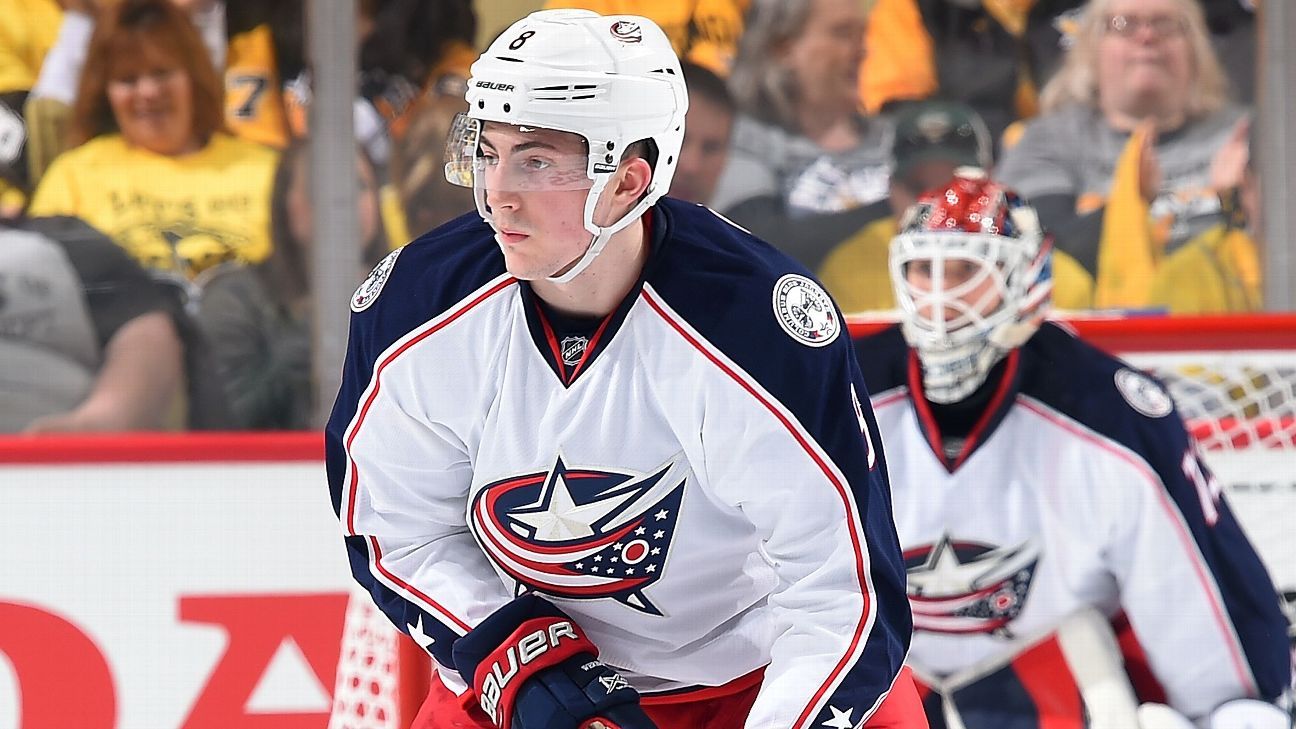
Columbus Blue Jackets defenseman Zach Werenski has signed a three-year, $15 million contract, general manager Jarmo Kekalainen announced Monday.
"Zach Werenski is one of the best young defensemen in the National Hockey League and we couldn't be happier that he will continue to be a foundational player for the Columbus Blue Jackets," Kekalainen said in a statement. "He is a gifted offensive player that has continued to improve in all facets of the game and will be an elite player for many years."
Werenski, 22, had 44 points in 82 games last season for Columbus, averaging a career high 22:54 per game. In three seasons, the Michigan native has blossomed into one of the NHL's best young defensemen, with 128 points in 237 games and solid underlying analytics.
He was part of a restricted-free-agent crop this summer that led to several negotiation stalemates around the league, as teams waited on other RFAs to sign their deals and set the market. Sources told ESPN last month that Werenski was waiting on Boston Bruins defenseman Charlie McAvoy and Philadelphia Flyers defenseman Ivan Provorov, both restricted free agents. Instead, he's the one who sets the market.
The $5 million AAV on this contract gives Werenski only the sixth-highest cap hit on the Blue Jackets and puts him at No. 51 overall for active NHL defensemen. It's a bridge contract, meant to bring Werenski closer to unrestricted free agency and the riches that it brings. But when it ends in 2022, Werenski will still have one more year of restricted-free-agent status. His salary in the final year of his deal rises to $7 million, establishing a new floor for his next contract.
For the Blue Jackets, the contract means that their top two defensemen have contracts that expire at the same time. Seth Jones, who has 228 points in 468 career games and has been Werenski's frequent partner on the blue line, is an unrestricted free agent in 2022. But getting Werenski to sign at this salary-cap hit, and with an arbitration-eligible year left before unrestricted free agency, is being seen as a coup around the NHL -- even if the agents for the league's remaining young RFA defensemen might be cringing at the team-friendly financials.














 Phone: (800) 737. 6040
Phone: (800) 737. 6040 Fax: (800) 825 5558
Fax: (800) 825 5558 Website:
Website:  Email:
Email: 






